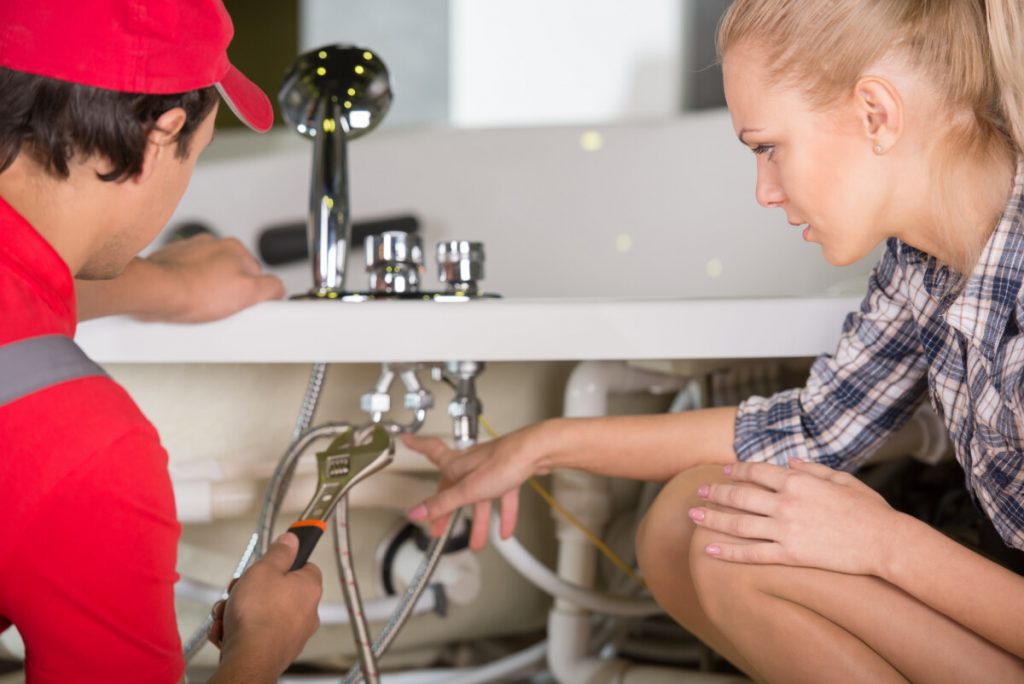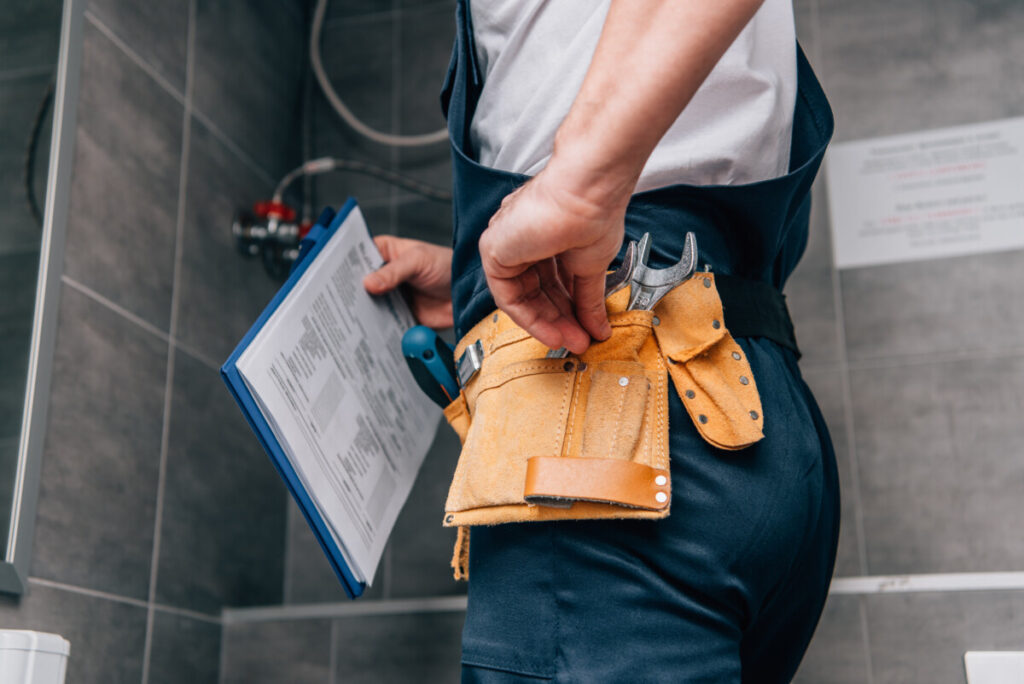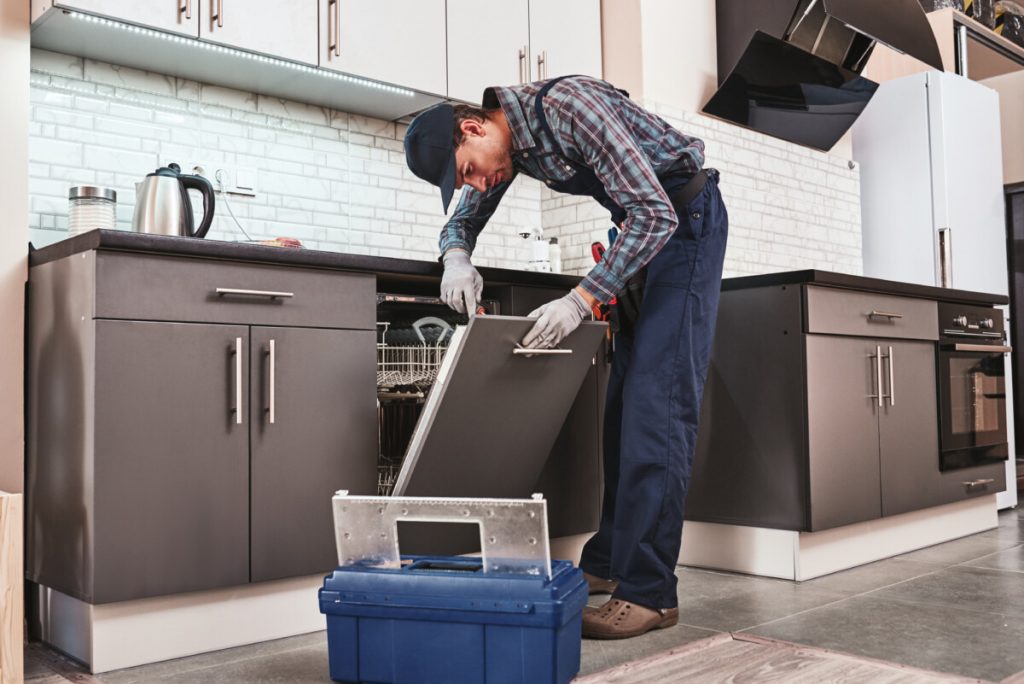Important Things to Consider when Pricing a Plumbing Job

If you are looking for what to consider when pricing a plumbing job, then you have come to the right place. Pricing in any business is hard, especially when it is primarily centered around a service and cannot be easily quantified. A common trade field like this is plumbing. The prices you choose for your plumbing jobs should reflect your hard work, yet they should still be fair to the customer.
There are many things to take into consideration when pricing your plumbing job, such as the amount of experience you have, the title you have obtained, and what the local community is charging. It can be difficult deciding how much to charge your customers, so you will want to keep reading so you know the different factors you will need to take into account.
1. Amount of Experience
The first thing that you will want to take into account when pricing a plumbing job is the amount of experience you have. More experienced plumbers can charge more for their services, while those who have not been in the business for long should have cheaper prices. Less experienced plumbers typically have to work their way up the ladder when it comes to their pricing. They have to start off at lower prices and build a solid reputation before they can start increasing their prices to match the rates of their competitors.
Many individuals look at the experience a plumber has before hiring them. They do not want to hire someone who does not have a lot of know-how in the area, even if the plumber is more than capable of completing the job. This is because credentials can go a long way when hiring someone for any service. A lack of experience can make a businesses struggle, which is why pricing your plumbing business accurately is crucial.
Those who are more experienced are more trusted. Those who are credible and have had immense exposure to plumbing can charge more as a result. People know they will get a reliable level of quality so they will be willing to pay more for it.
Depending on how much experience one has, it can determine how much the plumber can charge per hour. Those who are just starting their plumbing business typically charge about $80 per hour. Those who are more experienced can charge a premium amount and charge in excess of $100 per hour.
To gain a deeper insight of pricing medium and larger scale construction projects, you may want to take a look at Rawlinsons Australian Construction Handbook.
2. Location of Your Business

The second thing that you will want to take into account when pricing a plumbing job is the location of your business. Depending on the local competition in your area, this can make a large difference in what you charge for your plumbing services. You will want to make your prices competitive, so the prices you pick should accurately reflect what the other businesses in the area are charging.
Before making any final decisions on what you charge for your plumbing services, make sure you examine the local competition and what they charge. This will help you determine a great estimate of what you can start charging for your business.
Local competition should be accounted for when choosing how much to charge for plumbing. Depending on where you live, you may be able to charge more based on what other people are charging. If you live in an affluent neighborhood, then you will be able to get by with higher prices. If you do not live in one of these neighborhoods, however, then you will want to price your plumbing services low enough so local residents can afford them.
When you are checking out the local competition, you will also want to take their level of experience into consideration. If the local plumbing businesses do not have a lot of experience but you do, then you can charge more than them.
Although you should not completely base your prices around the rates of the local competitors, you will still want to know how much they are charging. It will give you an accurate feel of the neighborhood and what prices are considered fair and accurate based on the service you are providing.
3. Flat Fee vs Hourly Rate Pay Model
The third thing that you will want to take into account when pricing a plumbing job is whether you want to charge customers a flat fee or an hourly rate. There is no wrong option when choosing which one to do, it is all based on your personal preference. Both of these options have their own unique pros and cons, which will be discussed below.
Flat Fee
A flat fee plumber is typically first hired to come to look at the project that you need help with. The flat fee plumber charges a fee of about $80-$150 to come out to your house. After inspection, the plumber will then give the customer an estimate about what the project should cost. Then the customer has to make a decision about whether or not the flat fee plumber is going to be hired for the task.
If the flat fee plumber is hired, then the plumber will complete the project for the price that was originally discussed. These types of plumbers typically have an immense amount of experience to be able to in this manner, so you are less likely to have to worry about being unsatisfied with the job.
However, these types of plumbers typically make their flat fee higher than what the hourly rate plumber would estimate. It is important to note, however, that the hourly rate plumber would undermine how much the final cost would be within his estimation. Flat flee plumbers are typically hired because the customer can be confident about the agreed-upon price.
Hourly Rate
Hourly rate plumbers are extremely common. As can be guessed by the name, these plumbers charge for their services by the hour. When they give an estimate for their prices, they typically (but not always) say that it will be much cheaper than what it actually comes down to. This can lead to frustration with the customer, however, this is all part of the process of hiring an hourly rate plumber.
Residential plumbers typically make less than commercial. These plumbers typically work within a home and are subject to fixing common plumbing issues. Residential plumbers stick perform minor jobs, which is why they do not get paid as well as commercial plumbers.
Commercial plumbers typically can make more than residential plumbers. These plumbers work in commercial settings and are well educated in many different areas. Commercial plumbers have experience like no other and they are knowledgeable in all fields. They are constantly growing and learning, as they must be up to date with current commercial plumbing needs. In addition, they must be capable of handling many tasks at once, as they are oftentimes faced with multiple pressing issues at one time.
4. Additional Expenses

The fourth thing that you will want to take into account when pricing a plumbing job is the additional expenses you'll run into. If a plumbing job requires expenses that are outside the norm, then the customer should get charged. Make sure that when you are dealing with additional expenses that it is included in the final price. Otherwise, as a plumber, you are not setting accurate prices for your services.
It is not uncommon for additional expenses to be accidentally missed in the initial estimate that is given by the plumber. Because of this, customers oftentimes complain and state that they do not have to pay for the extra services and that it is the plumber's responsibility to pay for the items not included in the estimate. However, the responsibility to pay for the additional expenses frequently lies on the customer.
If any job requires extra supplies or time, then an additional payment may need to be made by the customer, depending on how the job was quoted and the scope of the job quoted on. For example, sometimes the plumber needs to bring in an extra person from another field to help with a project. If the customer does not do this themself, then the plumber should get paid extra for using their own time and resources. Keep track of additional expenses to make sure that customers are getting charged an accurate amount for what you are providing them.
5. Title of the Plumber
The fifth thing that you will want to take into account when pricing a plumbing job is whether or not you are a master plumber. A master plumber is a very prestigious level to have achieved. Typically, master plumbers specialize in one area, which makes them professionals in that field. Master plumbers can get paid more than any other level of plumber because they have demonstrated that they have knowledge and experience far beyond that of the average plumber.
Typically when customers see a plumbing van pull up at their property with Master Plumbers logo on the side of the van, they feel like they are in good hands. They are more than likely to be willing to pay a premium for this feeling.
6. Working Hours

The sixth thing that you will want to take into account when pricing a plumbing job is the number of hours you work. Depending on the hours that you are working, you can charge more for the job.
For example, plumbers that are on-call or that are treating emergency problems can charge more for a job than is usually called for. This is because these plumbers must respond promptly and are sometimes required to work outside of their usual hours.
Emergency Jobs
Plumbers who do emergency jobs have the ability to charge more for their services. This is because they must respond quickly to the customer and have to get the job done immediately. This means that emergency plumbing jobs can and should cost more than a regular job.
Commonly seen emergency jobs include repairing leaks, replacing water heaters, and fixing sewers. With any of these jobs, a plumber can charge more. In addition, some plumbing businesses do not take emergency calls, which means that those who do can charge even more for what they are offering.
On-Call Plumbers
On-call plumbers can charge more for their services and rightfully so. These plumbers sometimes get calls at inconvenient times that require them to drop what they are doing and attend to the problem. These plumbers will get to the location promptly and are available 24/7.
7. Cost of Overhead Expenses
The seventh thing that you will want to take into account when pricing a plumbing job is the cost of overhead expenses. Overhead expenses refers to the amount of money it takes to keep a business running.
This includes the cost of rent, utilities, insurance, etc. None of these things are free, yet they are necessary to maintain a plumbing business. You will want to make sure that your prices are high enough to cover these overhead costs and still have the right prices to bring in a decent income.
8. Kinds of Services Offered

The eighth thing that you will want to take into account when pricing a plumbing job is what services you are going to offer. Based on the services that you provide from your plumbing business, it will make a difference in what you can charge.
The more services your company offers, the more work you may get. However, a business that specializes in one area can sometimes make more than a business that covers all the different areas of plumbing.
